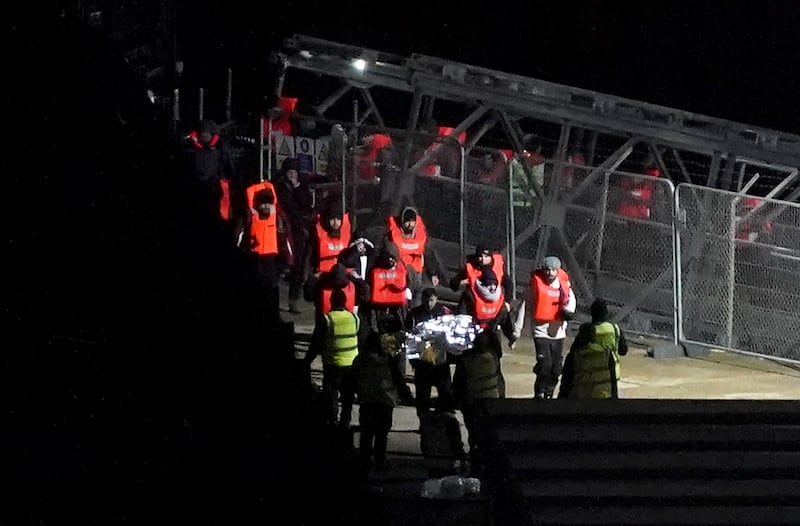Migrants crossing the English Channel have been reported for the first time in 2024.
Arrivals have not been recorded since December 16, according to Home Office figures, with poor weather conditions potentially contributing to the lack of activity at sea.
On Saturday morning, a group of people believed to be migrants were brought to shore in Dover, Kent.
They were seen arriving in a Border Force vessel.
Previously there were 26 days of no crossings to the UK recorded up until January 11.

This was the longest gap in small boat arrivals for five years.
The provisional annual total for 2023, 29,437, is 36% lower than the record 45,774 crossings for the whole of 2022.
It is still the second highest annual total on record, above the figure for 2021 (28,526).
Labour’s shadow immigration minister Stephen Kinnock said: “The Prime Minister and Home Secretary spent the festive period crowing about their small boats policies, but this proves what experts said the whole time. The pause in crossings had nothing to do with them and everything to do with the wet, windy weather.
“Next week, instead of focusing all their efforts on the sensible interventions we know will work, like Labour’s plan to smash the criminal smuggling gangs and speed up returns, they will once again spend their time fighting with each other over their failing and extortionate Rwanda plan.
“We know the Tories have already pledged to give up to £400 million to the Rwandan government without a single person being removed to the country. It’s time they stopped wasting taxpayers’ money and get on with the hard work needed to stop the small boat crossings.”



